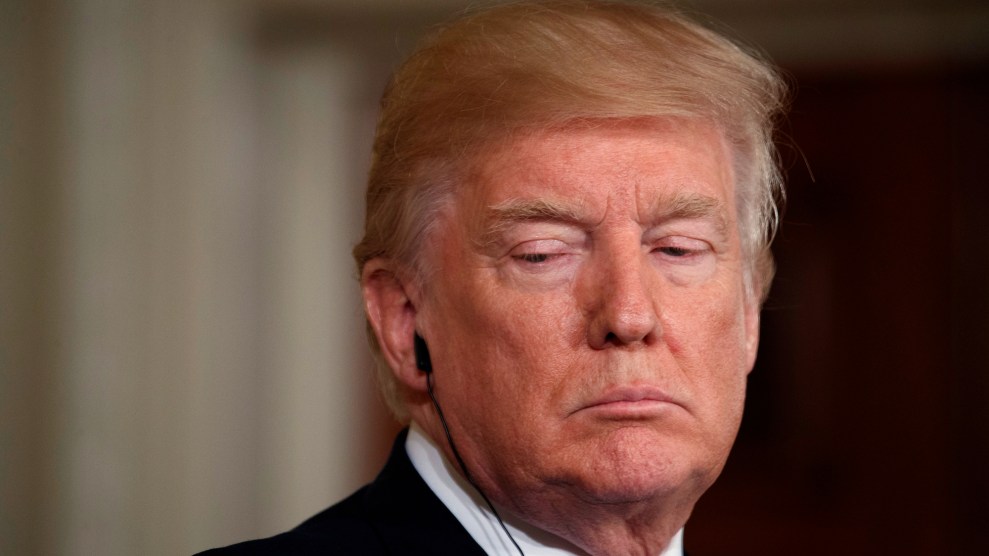
Evan Vucci/AP
Donald Trump now faces two indictments and 17 charges related to his role in attempting to overturn the results of the 2020 election, and in both cases, prosecutors are aiming to try the former president before the 2024 vote. But according to some conservative legal scholars, these criminal proceedings may be beside the point when considering whether Trump should be eligible to hold the presidency at all.
In The Atlantic this weekend, former federal judge J. Michael Luttig and professor of constitutional law Laurence H. Tribe chimed in with their version of an argument continuing to gain traction among legal scholars that the Fourteenth Amendment excludes Trump from holding office again at any level. According to Luttig and Tribe, the Fourteenth Amendment’s Section 3 bars any person who has previously taken an oath to support the Constitution in an official capacity and who later “engaged in insurrection or rebellion” against the Constitution from holding an official office again.
So maybe, if you were to, say, take an inaugural oath to protect the Constitution, and then later take steps like demanding the Georgia Secretary of State “find” the votes to win you the election, or file bogus lawsuits to try and overturn the results, or attempt to obstruct Congress from certifying the results from said election, or lie repeatedly and knowingly to the American people about the results, you can’t be president again? Tribe and Luttig encourage all of us, “regardless of partisan leaning,” to consider these sentences from Section 3 ourselves:
No person shall be a Senator or Representative in Congress, or elector of President and Vice President, or hold any office, civil or military, under the United States, or under any State, who, having previously taken an oath, as a member of Congress, or as an officer of the United States, or as a member of any State legislature, or as an executive or judicial officer of any State, to support the Constitution of the United States, shall have engaged in insurrection or rebellion against the same, or given aid or comfort to the enemies thereof. But Congress may by a vote of two-thirds of each House, remove such disability.
This argument isn’t just coming from the left. It’s notable that Luttig is considered a conservative legal scholar. He was a corporate attorney, and was later appointed to the federal bench by George Bush Sr. before returning to corporate law. The same argument he makes about Section 3 is supported by legal scholars William Baude and Michael Stokes Paulsen in a forthcoming article in the University of Pennsylvania Law Review. As Tribe and Luttig point out in The Atlantic, “Baude and Paulsen are two of the most prominent conservative constitutional scholars in America, and both are affiliated with the Federalist Society, making it more difficult for them to be dismissed as political partisans.”
Trump, meanwhile, continues his campaign for 2024, though unsurprisingly, he’s taking an atypical approach: He will be skipping the upcoming GOP primary debate, and instead plans to air an already taped sit-down interview with Tucker Carlson, the once Fox News star and current Tucker on Twitter host.








